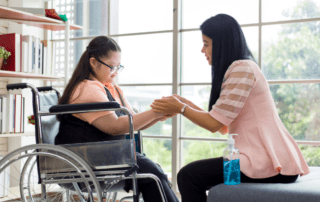Managing Bleeding Gums in Older Adults: Six Essential Tips
Older adults often experience bleeding gums, which can indicate underlying health issues and lead to dental problems if untreated. To prevent bleeding gums, maintain a consistent oral hygiene routine by brushing and flossing regularly, attend biannual dental check-ups, eat a balanced diet rich in vitamins and minerals, stay hydrated, quit smoking, and manage chronic conditions like diabetes and cardiovascular disease. Seeking professional help is essential if bleeding gums persist.










